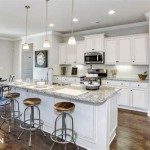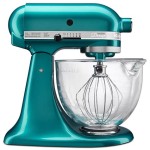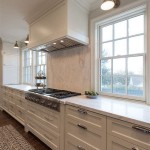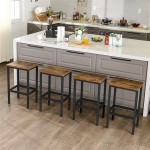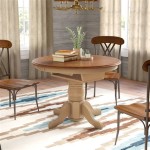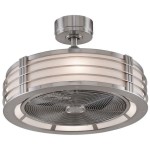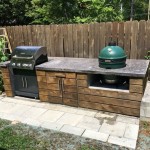What Is The Most Durable Kitchen Countertop?
The kitchen countertop endures significant wear and tear. From food preparation to serving as a temporary workspace, the surface is constantly subjected to impacts, spills, heat, and abrasion. Choosing a durable material is therefore a critical aspect of kitchen design and renovation. A countertop’s durability is determined by its resistance to staining, scratching, chipping, heat, and the overall lifespan of the material under normal use. This article will examine several common countertop materials, highlighting their strengths and weaknesses in terms of durability, to determine which option offers the most resilience.
Quartz: Engineered for Resilience
Quartz countertops are engineered stone products, typically composed of around 90-95% ground quartz and 5-10% resins, polymers, and pigments. This manufacturing process results in a non-porous surface that is highly resistant to stains, scratches, and impacts. The resins bind the quartz particles together, creating a solid and consistent material that is less prone to cracking or chipping compared to natural stone. The non-porous nature of quartz also makes it highly hygienic, as it prevents the absorption of bacteria and liquids, reducing the risk of foodborne illnesses. Regular cleaning with soap and water is generally sufficient to maintain its appearance.
The high quartz content in these countertops contributes significantly to their hardness. Quartz ranks a 7 on the Mohs hardness scale, meaning it can withstand significant abrasion and daily use without showing signs of wear. While it is not entirely impervious to damage, it is less susceptible to etching from acidic substances than materials like marble. The resins used in the manufacturing process also provide a degree of flexibility, allowing the countertop to absorb minor impacts without cracking.
Heat resistance is a factor to consider with quartz countertops. While they can withstand moderate heat exposure, prolonged or direct contact with hot pots and pans can potentially damage the resin binders, leading to discoloration or scorching. Using trivets or hot pads is recommended to protect the surface from excessive heat. Overall, the combination of stain resistance, scratch resistance, and impact resistance makes quartz a robust and durable selection for kitchen countertops.
Granite: Natural Stone Strength
Granite is a natural igneous rock formed deep within the earth and known for its strength and durability. As a natural stone, granite features a unique and varied appearance, adding character to any kitchen. Its durability stems from its inherent hardness and density. Like quartz, granite contains significant amounts of silica and quartz, contributing to its resistance to abrasion and damage from daily use.
Granite is heat resistant, capable of withstanding high temperatures without melting or warping. This property makes it a practical choice for kitchen countertops, where hot pots and pans are frequently placed. However, sudden temperature changes can potentially cause stress fractures, so using trivets is still recommended to prevent thermal shock. The stone is also resistant to scratching from most household items, although using cutting boards is always advisable to protect it from knives and other sharp objects.
One potential drawback of granite is its porous nature. Although most granite countertops are sealed during installation, the sealant can wear down over time, leaving the stone vulnerable to staining from liquids like oil, wine, and juice. Regular resealing is necessary to maintain the integrity of the surface and prevent staining. Granite is also susceptible to chipping, particularly along edges and corners, if subjected to heavy impacts. Despite these potential weaknesses, with proper care and maintenance, granite countertops can provide many years of reliable service.
Solid Surface: Seamless Durability
Solid surface countertops are man-made materials composed of acrylic or polyester resins combined with mineral fillers. These materials are known for their non-porous and seamless construction, properties that contribute significantly to their durability and ease of maintenance. The absence of seams eliminates areas where dirt and bacteria can accumulate, making solid surface countertops a hygienic option for kitchens.
Solid surface countertops are resistant to stains and mold growth, as liquids cannot penetrate the non-porous surface. They are also relatively easy to repair. Minor scratches and dents can often be buffed out with abrasive pads, restoring the surface to its original condition. This ability to be refinished extends the lifespan of the countertop and maintains its aesthetic appeal over time.
However, solid surface countertops are not as heat resistant as quartz or granite. Prolonged exposure to high temperatures can cause discoloration or warping. They are also more susceptible to scratching than harder materials like granite or quartz. While minor scratches can be repaired, deeper gouges may require professional repair. Despite these limitations, the seamless construction and ease of repair make solid surface countertops a durable and practical choice for many kitchens.
Laminate: Budget-Friendly Performance
Laminate countertops consist of a thin layer of decorative plastic laminate bonded to a substrate, typically particleboard or MDF (medium-density fiberboard). Laminate is a cost-effective option that offers a wide range of colors and patterns, making it a versatile choice for kitchens with various design styles. While laminate countertops are not as durable as other materials discussed, advancements in manufacturing have improved their resistance to scratches, stains, and heat.
Modern laminates often incorporate wear-resistant coatings that enhance their durability. However, laminate countertops are still more prone to scratching and chipping than materials like quartz or granite. They are also susceptible to water damage if the laminate layer is compromised, as the substrate can swell and warp when exposed to moisture. Promptly wiping up spills is essential to prevent water damage and maintain the integrity of the countertop. The edges and seams are particularly vulnerable to moisture penetration, so proper installation and sealing are crucial.
Although laminate countertops are not as heat resistant as stone or engineered stone, some newer versions incorporate heat-resistant layers that can withstand moderate heat exposure. Even with these improvements, using trivets and hot pads is recommended to protect the surface from damage. While laminate countertops may not be the most durable option available, they can provide satisfactory performance for kitchens with light to moderate use, especially when budget is a primary concern. Their affordability and ease of installation make them a popular choice for many homeowners and renters.
Concrete: Industrial Strength
Concrete countertops offer a distinctive, industrial-chic aesthetic and can be customized to match any design style. Made from a mixture of cement, aggregates, and additives, concrete countertops are known for their strength and durability. However, the durability of concrete countertops depends greatly on the mix design, the quality of the materials used, and the sealing process. Properly sealed concrete countertops are resistant to scratches and heat, capable of withstanding high temperatures without damage. The thermal mass of concrete also makes it useful for maintaining consistent temperatures.
However, concrete is naturally porous and susceptible to staining if not properly sealed. Sealants need to be reapplied periodically to maintain their effectiveness. The material is also prone to cracking, especially during the curing process or due to structural movement. Hairline cracks are common and are not typically a structural concern, but larger cracks can compromise the integrity of the countertop. The porous nature of concrete can also lead to the absorption of bacteria and odors if the sealant fails.
Concrete countertops are heavy, requiring strong support structures and careful installation. They are also more expensive than some other countertop materials, due to the labor-intensive fabrication and installation process. While concrete countertops offer a unique aesthetic and can be durable with proper care and maintenance, their porous nature and susceptibility to cracking require ongoing attention and resealing.
Butcher Block: Warmth and Functionality
Butcher block countertops are made from solid wood, typically maple, oak, or birch. They provide a warm and inviting aesthetic and offer a functional surface for food preparation. Butcher block surfaces are relatively easy to clean and maintain, requiring only regular washing with soap and water. The wood is also naturally antibacterial, which can help reduce the risk of foodborne illnesses. The surface can also be sanded down and refinished if it gets stained or scratched.
However, wood is inherently susceptible to moisture damage. Butcher block countertops need to be regularly oiled or sealed to prevent water absorption and warping. Standing water should be wiped up promptly to avoid staining and damage. Butcher block countertops are also susceptible to scratches and dents from knives and other sharp objects. While minor scratches can be sanded out, deep gouges may require more extensive repairs. Butcher block countertops are not as heat resistant as stone or engineered stone. Hot pots and pans can scorch or warp the surface, so using trivets is recommended.
The durability of butcher block countertops depends on the type of wood used and the quality of the finish. Harder woods like maple and oak are more resistant to scratching and denting than softer woods like pine. Proper sealing and regular maintenance are essential to protect the wood from moisture damage and maintain its appearance. Butcher block countertops require careful handling and periodic maintenance to ensure they retain their appearance and functionality.
:max_bytes(150000):strip_icc()/top-kitchen-countertops-1977143-03-023194027a3749d28b2d06c727d6cfee.jpeg?strip=all)
10 Most Durable Countertops For Kitchens

The 5 Most Durable Countertop Materials Seiffert Building Supplies

What Are The Most Durable Kitchen Countertop Materials

Most Durable Countertops Marble Unlimited

From Quartz To Wood A Look At The Best Kitchen Countertop Materials Boss Design Center

Top 5 Most Durable Countertop Materials For Your Kitchen

Choosing The Right Kitchen Countertops Dumpsters Com

The Best Material For Kitchen Countertops Kauffman Kitchens Blog

What Are The Best Kitchen Countertops For Busy Families R D Marble Inc

What Are The Most Durable Countertop Materials Factory

